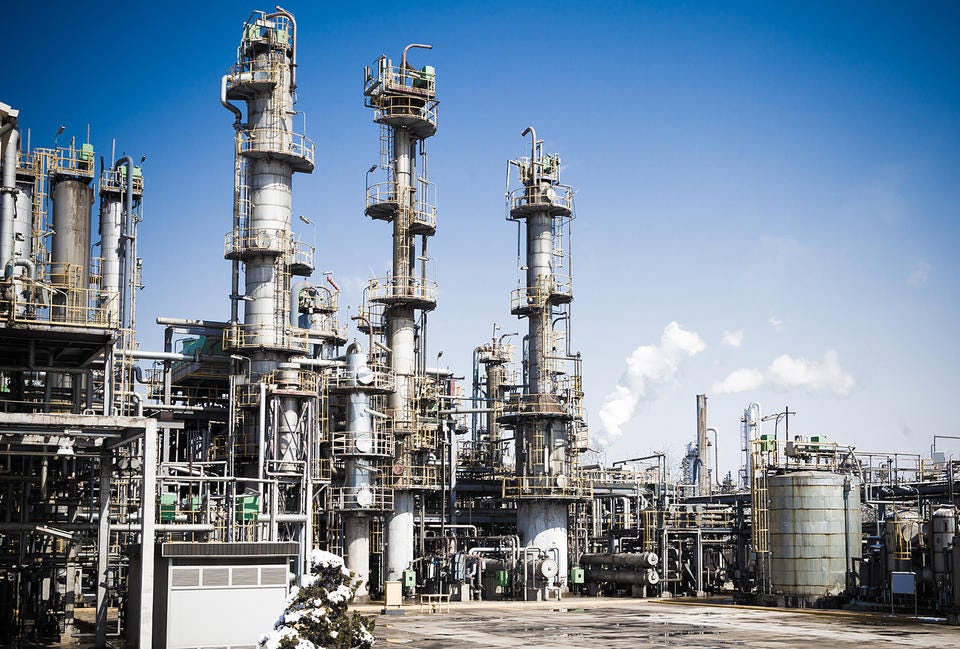Stora Enso Launches Accelerator

In the News
Green Chemicals Blog reported that Stora Enso has launched an accelerator program. Stora Enso is partnering with Vertical and Aalto University in their accelerator and they join a host of other companies trying to accelerate or incubate new chemical technology. The United States Department of Energy has also announced the award winners for a recent $27 million for circular plastics economy research. Stora Enso is also one of the industry partners working with the DOE and University of Wisconsin, Madison on making polyesters from biomass.
Who is Stora Enso?
Stora Enso is a Finnish company that is focused on transforming trees into products such as pulp, pine chemicals, and forest products. Their Q3 earnings have improved due to the high demand on paper and cardboard (shipping packages) and the demand for lumber is also strong right now. Stora Enso is representative of a whole swath of chemical companies that rely on forests to produce their products with counterparts being Ingevity, Kraton, Georgia Pacific, and West Fraser to name a few.
Chemicals from Trees?
Chemists have been extracting chemicals from forests since before oil refinement became widespread. Forests produce two of the most abundant biopolymers on the planet: cellulose and lignin. Humans have been using cellulose for centuries to make paper and pulp mills have been separating cellulose from lignin since 1690 in the United States. In fact, pulp mills could be a model for how a biorefinery might function and separating cellulose from lignin is the first step in producing chemicals from non-food biomass.
What is an Accelerator?
An accelerator is a program that intends to speed up a more established start-up into gaining market penetration, sales, visibility, or all three. An accelerator typically helps companies that have product market fit, maybe some sales, and some credibility. An incubator is different from an accelerator in that it is typically used to help build out the foundation of a company that might one day enter an accelerator. Incubators and accelerators are often spoken about in the tech world where ideas and products can be developed from a home office or garage by software engineers, computer scientists, and designers and going from a million dollar company to a billion dollars can happen in a few years. Chemical start-ups cannot do that.
Accelerators and Incubators are Trending for Chemicals
A chemical company is different from traditional software and technology in that chemists and engineers often have to use chemicals, equipment, and processes that are not safe to operate in a residential setting. Making a new polymer or finding out a way to recycle or transform an existing polymer or plastic takes a lot of capital intensive equipment and needs to the correct environment to flourish. Traditionally, chemical research takes place either in Academia (where PhDs are made) or Industry (where products are made). It has become more common for PhD scientists and engineers to raise VC money to commercialize their research—the Langer lab is a good example.
Only recently have Incubators and Accelerators become a thing in chemicals due to large chemical and chemical industry adjacent companies developing venture capital divisions. BASF, Covestro, Dow Corning, DuPont, and Georgia Pacific, all have either an accelerator or an incubator to name a few. There are also 3rd party incubators like Greentown Labs near me in Somerville, in Pharma there are over 65 incubators across the country, and most large research universities will have an accelerator or incubator for students looking to commercialize their research.
Accelerators, but especially incubators are great ways for private companies or universities to take a small invested position into a very small company with minimal risk and a large potential for upside.
Invention is easy, but commercializing an invention is hard. Chemists invent new polymers every other day in the chemical literature, but many of these inventions will never be seen outside of an academic lab. Incubators specifically can help turn smaller ideas into companies and accelerators can turn those start-ups into more viable cash flowing companies that can exist on their own.

What Big Chemical Companies are Good At
Large established chemical companies are good at all the things a chemical start-up is weak at such as manufacturing at scale, supply chains, regulatory permits, access to analytical instruments, marketing knowledge, sales, and distribution. To host a start-up full of people with interesting ideas and provide them a small amount of funding and access to lab space or manufacturing is beneficial to both companies because the big company essentially gets an injection of new ideas, perspective, and potentially access to a downstream partner or competitor.
I haven’t seen a small chemical company grow up to become the new Dow, BASF, or even Covestro. Companies like Elevance might have a chance. Elevance is built on Nobel prize winning technology (olefin metathesis, 2005), has enough funding to build their own manufacturing, and raised a series C round in 2018, but they still need to wait years as their customers qualify or validate Elevance’s products.
The problem that companies like Elevance face is that an established manufacturer might find value in Elevance’s products, but might be wary of Elevance’s ability to manufacture at scale or the high price of a new product from a new technology. It might cost Elevance’s customers a few million dollars to develop a new product and if Elevance folds after 3 years it was all for naught.
Still want to commercialize your graduate school research or have an idea on how to make the world better through a combination of materials science and chemistry?
Hopefully you have a patent pending and access to an incubator.
The Polymerist
The views here are my own and do not represent those of my employer nor should they be considered investment advice.



